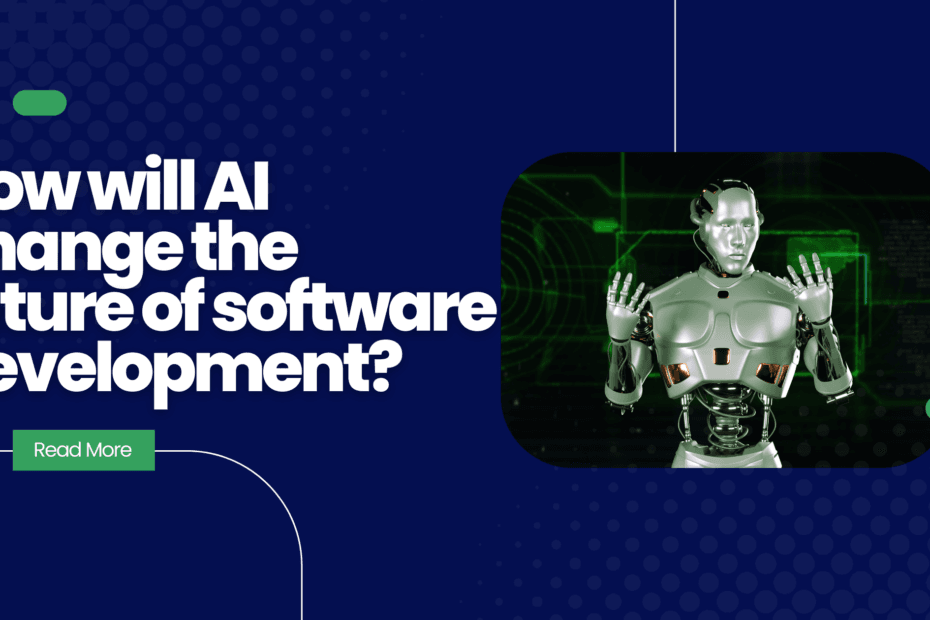AI is poised to significantly transform the future of software development in various ways. Here’s how:
1. Automating Code Generation:
- AI-Powered Code Assistance: Tools like GitHub Copilot and OpenAI Codex help developers write code faster by suggesting code snippets, auto-completing functions, and even generating entire code blocks based on the context.
- Low-Code/No-Code Platforms: AI can facilitate the growth of platforms that enable non-technical users to create applications with minimal coding, making software development more accessible.
2. Enhanced Testing and Debugging:
- Automated Bug Detection: AI can help identify potential bugs and vulnerabilities during the coding phase, reducing the time spent on manual testing.
- Predictive Testing: Machine learning algorithms can predict which areas of the code are most likely to fail based on historical data, allowing for more targeted and efficient testing.
3. Improved Development Speed and Efficiency:
- Faster Development Cycles: AI can streamline repetitive tasks such as code refactoring, data migration, and version control, enabling developers to focus on more complex aspects of development.
- Smarter Resource Management: AI tools can help allocate resources more effectively by analyzing project needs and making data-driven recommendations.
4. Enhanced Personalization and User Experience:
- Custom AI Features: Developers can integrate AI-driven features like recommendation systems, chatbots, and personalized user experiences into apps, making them more user-centric and engaging.
- Adaptive Interfaces: AI can help create interfaces that adapt based on user behavior, improving accessibility and usability.
5. Code Optimization and Performance Enhancement:
- AI-Driven Refactoring: AI tools can automatically refactor code to optimize performance and maintainability, ensuring that apps run efficiently and are easier to scale.
- Intelligent Code Review: AI can provide feedback on code quality, suggesting improvements and detecting anti-patterns that could lead to performance bottlenecks.
6. Enhanced Collaboration:
- AI-Powered Project Management: AI can assist in managing software development projects by predicting deadlines, identifying potential roadblocks, and optimizing workflows.
- Collaboration Tools: Advanced AI features in project management tools can assist teams in communication, task prioritization, and knowledge sharing, ensuring that team members are aligned.
7. Data Analysis and Decision-Making:
- AI for Business Insights: Developers can use AI to analyze user data and gain valuable insights into user behavior, which can inform development decisions and future updates.
- Predictive Analysis: Machine learning models can help anticipate market trends and user needs, allowing companies to adapt their software products proactively.
8. AI-Driven Security:
- Threat Detection: AI can enhance security by identifying potential vulnerabilities and threats in real-time, enabling developers to mitigate risks faster.
- Adaptive Security Systems: AI can create self-learning security protocols that evolve based on new threats, ensuring continuous protection for applications.
9. AI-Powered Development Environments:
- Smart IDEs (Integrated Development Environments): Development environments will become more intuitive with AI, providing contextual help, auto-completion, and real-time suggestions to improve coding efficiency.
- Virtual Assistants for Developers: AI-based virtual assistants can help developers navigate documentation, answer coding questions, and automate routine tasks.
10. Reducing Skill Barriers:
- Learning and Training: AI can assist new developers by guiding them through learning resources and providing context-based training.
- Collaborative Coding: AI can make collaborative coding more effective by translating code between different programming languages or suggesting multi-language frameworks.
Future Implications:
AI will not only change how software is developed but will also redefine the role of developers. While AI can handle routine and repetitive tasks, developers will focus more on problem-solving, innovation, and designing user-centric applications. This shift will push the industry toward a more efficient, creative, and collaborative future. However, it will also require developers to adapt and learn new skills to work alongside AI-powered tools effectively.
Overall, AI is set to revolutionize software development, making it faster, more efficient, and more accessible while opening up new possibilities for innovation.

